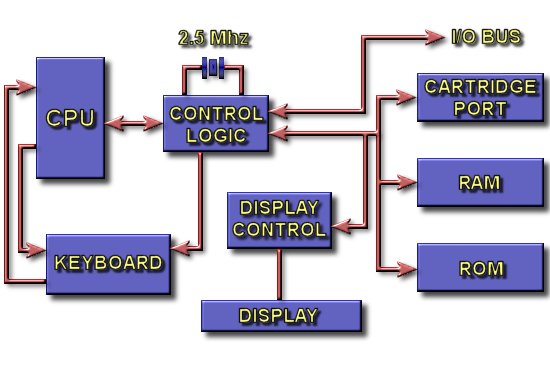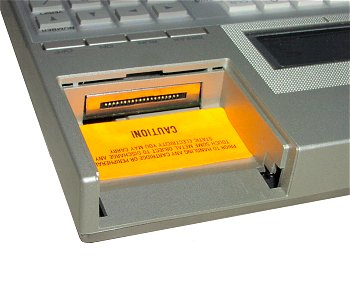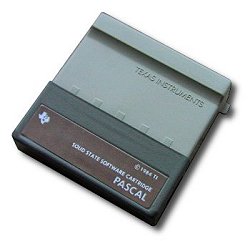 |
Texas Instruments
Compact Computer 40
|
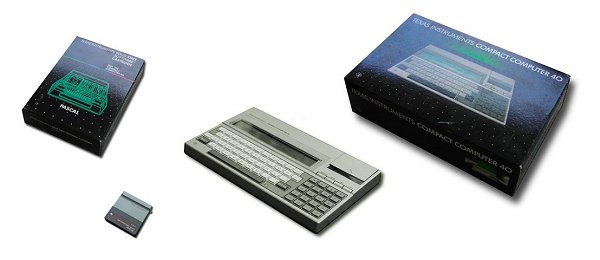
The TI CC-40 is a very compact, battery powered, portable computer introduced by Texas Instruments in late 1983.
A lot of 99'ers take interest in the CC40 due to the fact that it's basic is very close to that of the TI 99 and
because of the hexbus peripherals which could be made to work on a TI-99/4A. In the world of computers the CC40
could be considered a close cousin to the TI-99/4A.
The heart of the CC-40 was a 2.5MHz TMS70C20 8-bit microprocessor. It came with 34K of ROM and 6K of RAM. The RAM
could be expanded internally to 18K. The display on the CC-40 consisted of a liquid crystal display capable of
showing 31 charactors at a time, though each line had 80 charactors which could be scrolled back and forth on the LCD.
One really cool feature of the CC-40 was that any BASIC program that was typed into the console would stay, even if
the power was turned off.
The CC-40 could have been a very nice portable computer if not for the fact that a reliable storage system was never
really available for it. Though a wafertape drive was advertised and I assume a few were sold, they were very unreliable
and TI pulled them from the marketplace. Without any form of storage, the CC-40 slowly faded from view. The CC-40
sold for $249.95 in 1984.
|
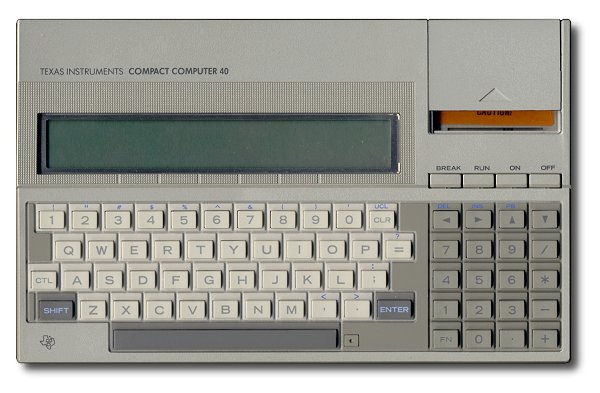
The CC-40 measures roughly 9"x6"x1" which makes it quite portable. As you can see by the above picture the keyboard
use the standard QWERTY setup and includes a number pad. Both upper and lower case characters can be used, and
these are real lower case letters, not just small upper case one. The "door" in the upper right is the cover for
the cartridge slot.
Below you can see one of the keyboard overlays
which comes with the CC-40. This overlay is used for BASIC.
|

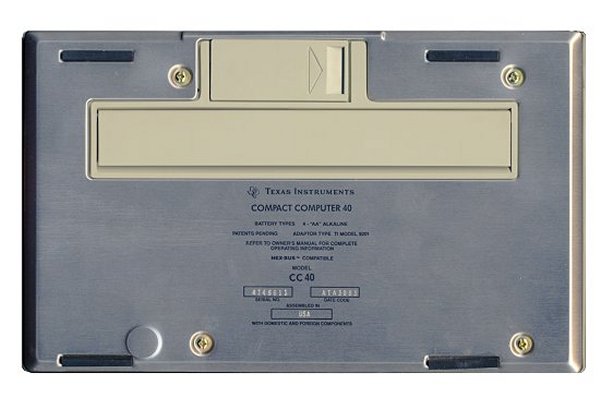
This is the back view of the CC-40. The little door at the top is the battery access. The CC-40 runs on
4-AA alkaline batteries. The suggested time for running with the batteries is roughly 200 hours! It will keep
the memory refreshed many months when off. There is also a jack to run it off of an AC adapter.
The flap below the battery door can be folded down and lets the CC-40 sit with a bit of angle, which is makes it
easier to work with then just sitting flat. There are also four rubber feet, which keeps if from sliding around on
table tops and such.
|

This is the back view of the CC-40. On the far right is the hexbus connector, and next to that is the jack for the
AC adapter. The cartridge port can be seen on the far left, the cover for the port has been removed.
|
There were several different cartridges produced for the CC-40. The cartridge on the right happens to be the
PASCAL cartridge. They simply inserted into the cartridge port on the CC-40.
|
On the side of the CC-40 was a an adjustment for the contrast of the display.|
| 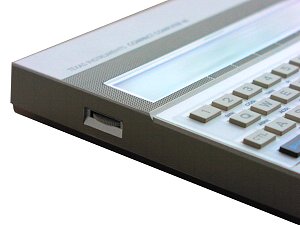
|
|
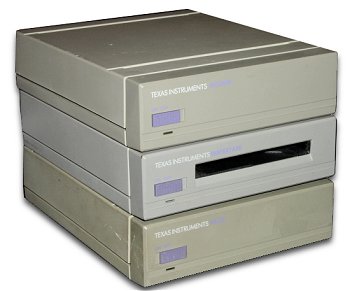
|
Several HEX Bus periphials were produced for the CC-40 but they are very rare today. These pictured
on the left are owned by Charles Good. They include a modem, an RS232, and the now infamous wafertape
drive.
|
Shown here is a an actual wafertape used in the wafertape drive.
|
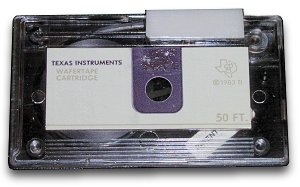
|
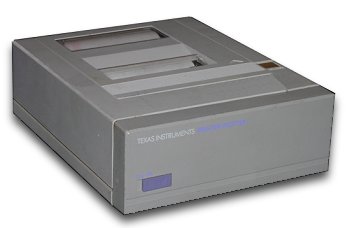
|
This is a HEX Bus printer/plotter.
|
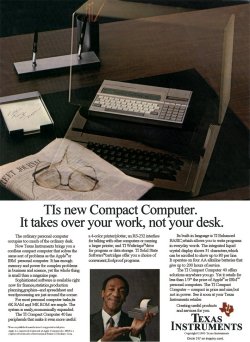
This is an add that ran in many magazines for the CC-40. To see a larger view of this add go here.
|

CC-40 Specifications
YEAR | 1983 | |
BUILT IN LANGUAGE | Special version of TI Extended Basic | |
KEYBOARD | Calculator (chicklet) style keyboard with separated numeric keypad, 4 function keys (BREAK, RUN, ON, OFF)
CTL, SHIFT, ENTER and large SPACEBAR | |
CPU | Texas-Instrument TMS-70C20 (CMOS 8-bit) | |
SPEED | 2.5 Mhz | |
RAM | 6 kb (up to 18 kb) | |
ROM | 34 kb (up to 128 kb) | |
TEXT MODES | 1 line of 31 characters (5 x 8 character matrix) | |
COLORS | monochrome LCD display (31 characters, scrollable to 80 chars) | |
SIZE / WEIGHT | 9.25'' x 5.75'' x 1'' | |
I/O PORTS | HexBus connector, cartridge port | |
POWER SUPPLY | Four AA batteries or AC Adapter |
CC-40 Motherboard
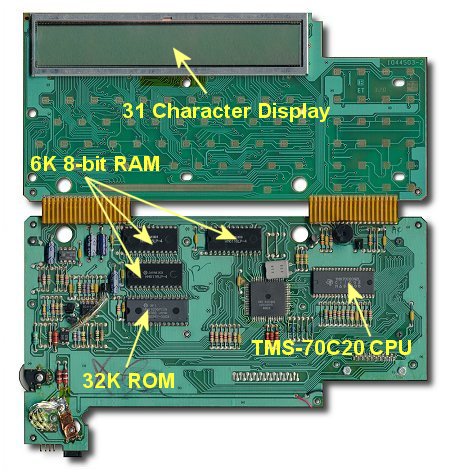
The above picture is the motherboard of the CC-40, an shows the CPU, the RAM, the ROM, and the display. For a
larger view of the motherboard go here.
|
View the page, Building of a TI-99/4A
